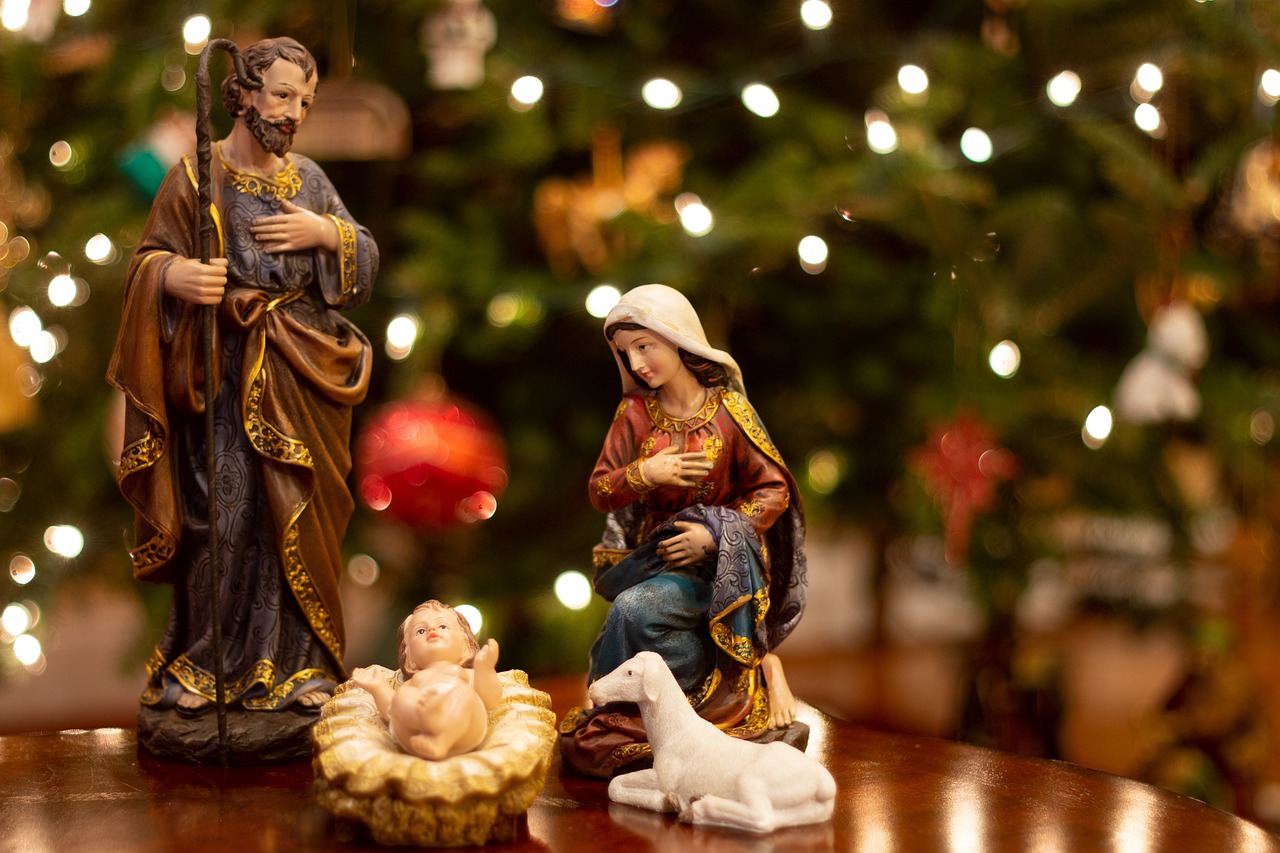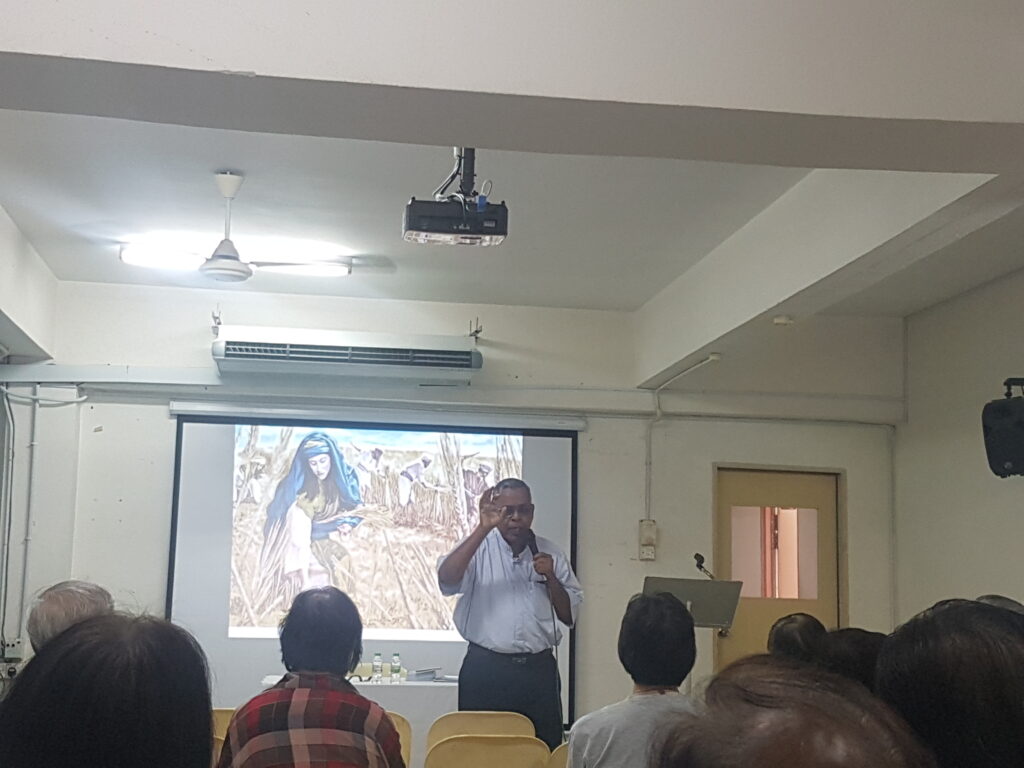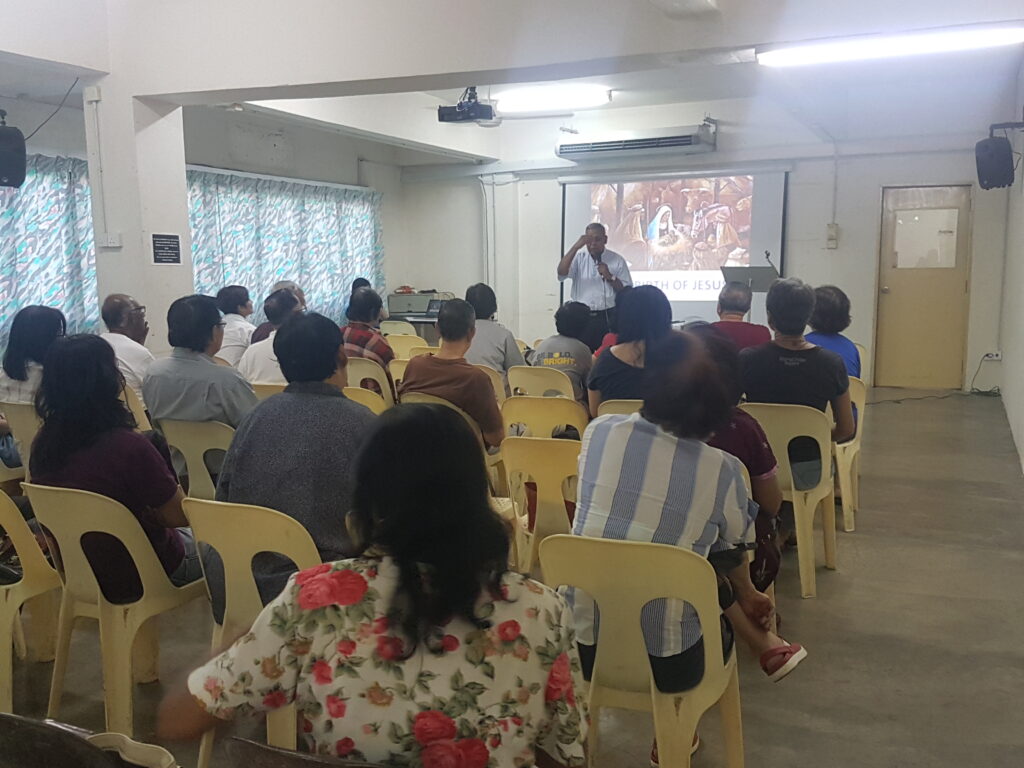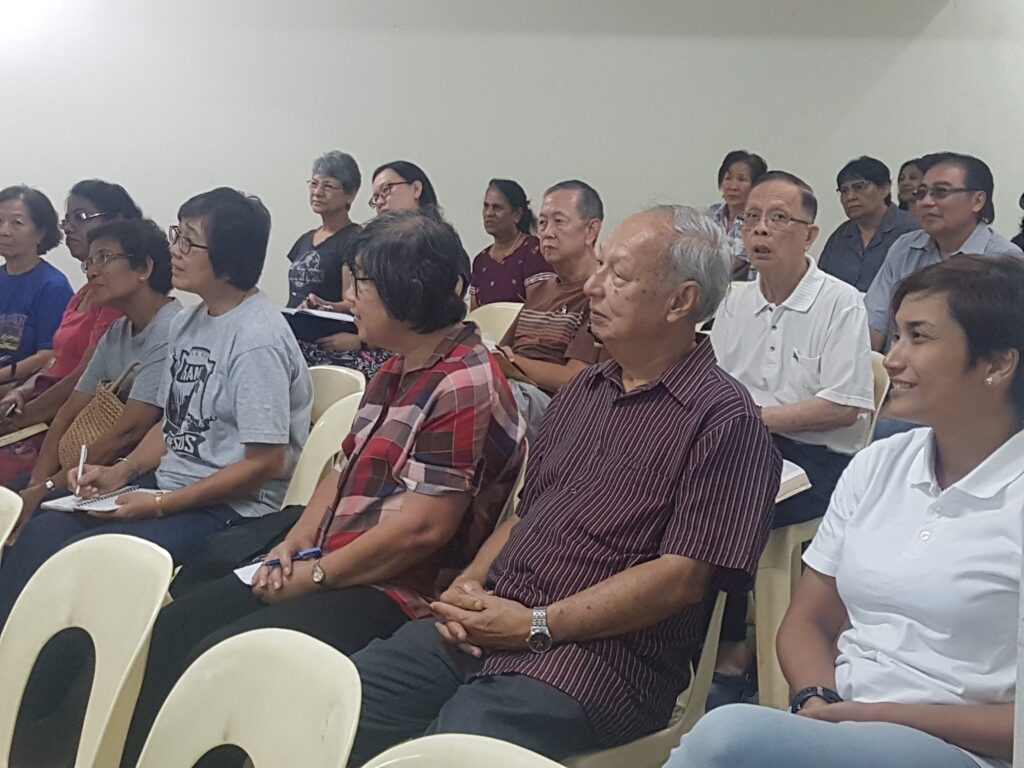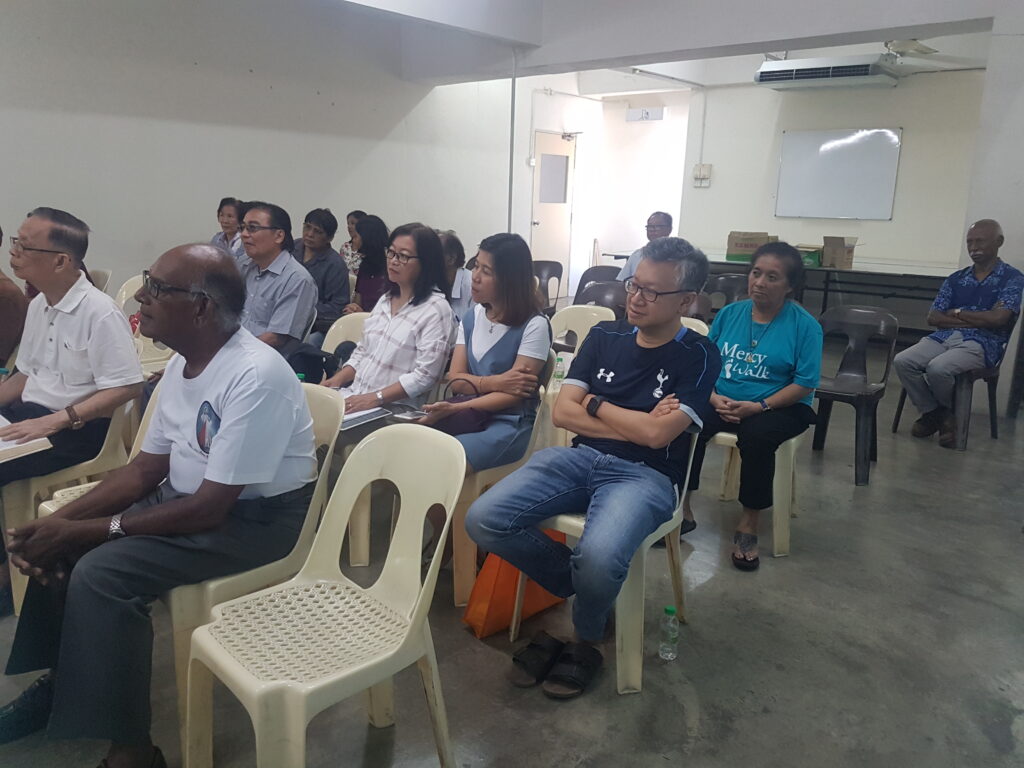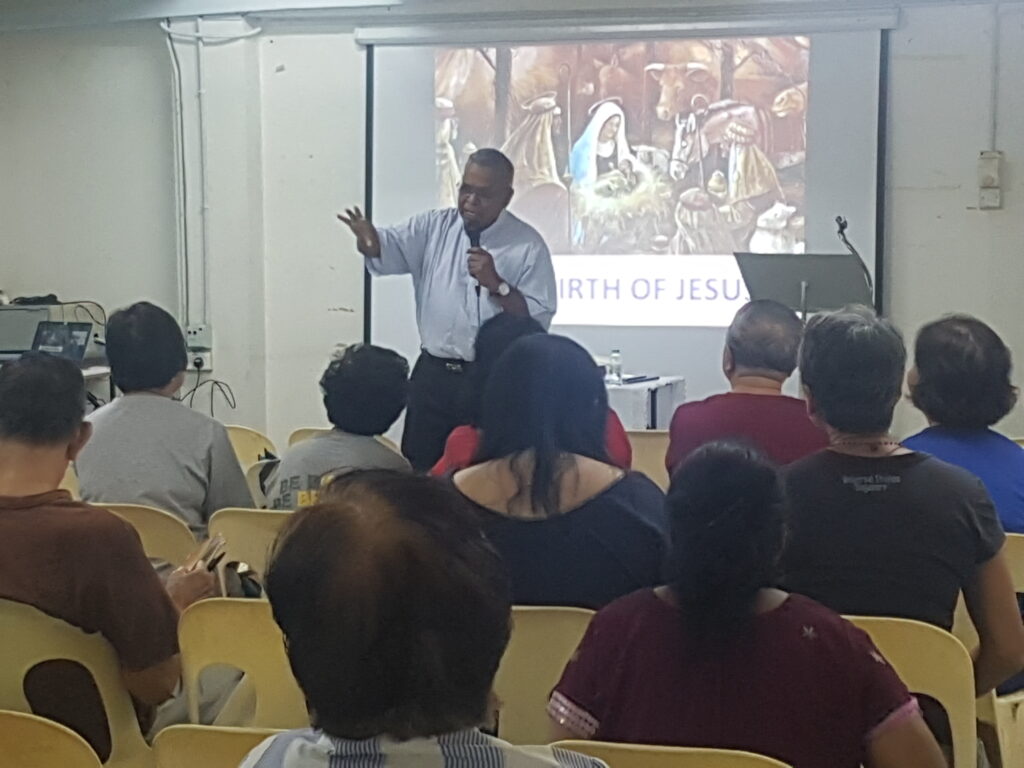An Advent Reflection on Grace
In preparation for the season of Advent, the parish invited Rev Fr Joe Stephens to facilitate a reflection session for the English-speaking parishioners. Centred on the theme of grace, Fr Joe, began by sharing that grace is given by God and builds upon nature.
Grace is favour, the free and undeserved help that God gives us to respond to his call to become children of God, adoptive sons, partakers of the divine nature, and of eternal life. (CCC 1997)
We who are recipients of God’s grace will experience the building of grace in our lives if we are open to receiving it from God. Grace builds on family and the church. As we come together in our brokenness to hear the Word, sing hymns, and receive the Eucharist, grace builds in us leading the parish to become holy, apostolic, and united.
Fr Joe went on to speak about the effects of grace in the lives of four women whose names are mentioned in the genealogy of Jesus. (Matt 1:1-16) The four women, Tamar (Genesis 38), Rahab (Joshua 2), Ruth (the book of Ruth), and Bathsheba (2 Samuel 11) experienced unpleasant circumstances in their lives and a few committed acts that may be considered disgraceful. However, it was through these women that Jesus came to be born. Grace, said Fr Joe, works through all kinds of people. It is given to anyone who is willing to open their hands and say, “Use me, God.”
The fifth woman mentioned in the genealogy of Jesus is Mary. At the Annunciation, the Archangel Gabriel greeted Mary by saying, “Hail Mary, full of grace.” This greeting is not about Mary, but rather describes the grace of God that has been poured upon her due to her willingness to cooperate with God throughout her life. Through the action of grace, Mary was transformed to be the Mother of God. It was through grace and not because of her own strength or power that our Blessed Mother was able to respond to God’s will. Similarly, in giving each one of us grace, God is inviting us to transformation. We only need to look towards the example of our Blessed Mother to know how to respond to God’s invitation.
Fr Joe continued that God calls each one of us to be a disciple of Jesus in the world today. To be a disciple, however, one must first know the person of Jesus. We may know much about Jesus such as the stories of his birth, baptism, the miracles he worked, and his death and resurrection. However, to truly know Jesus’ invitation for us, we must know the person of Jesus. The more we get to know the person of Jesus, the more rooted we become in discipleship.
Disciples are transmitters of faith. In his book Man’s Search for Meaning, Viktor Frankl writes that to live is to be able to choose one’s own way in any given set of circumstances. To become a disciple is to choose to become one. St Peter was a fisherman who chose to become a fisher of men, St Paul, a pharisee who chose to become an apostle of Christ, and the Blessed Virgin Mary was a young Jewish girl who chose to become the Mother of God.
We are each called to serve in various capacities in our communities. The Second Vatican Council emphasises on the participation of the laity in the Church. Participation in any ministry is a calling that needs careful discernment. Every person involved in active ministry must have a personal relationship with God. It must also be remembered that every service done is about others and not about self. Keeping these in mind, we are all called to be engaged in the life that Jesus came to share with the world and not be passive in our faith. (by KA)

